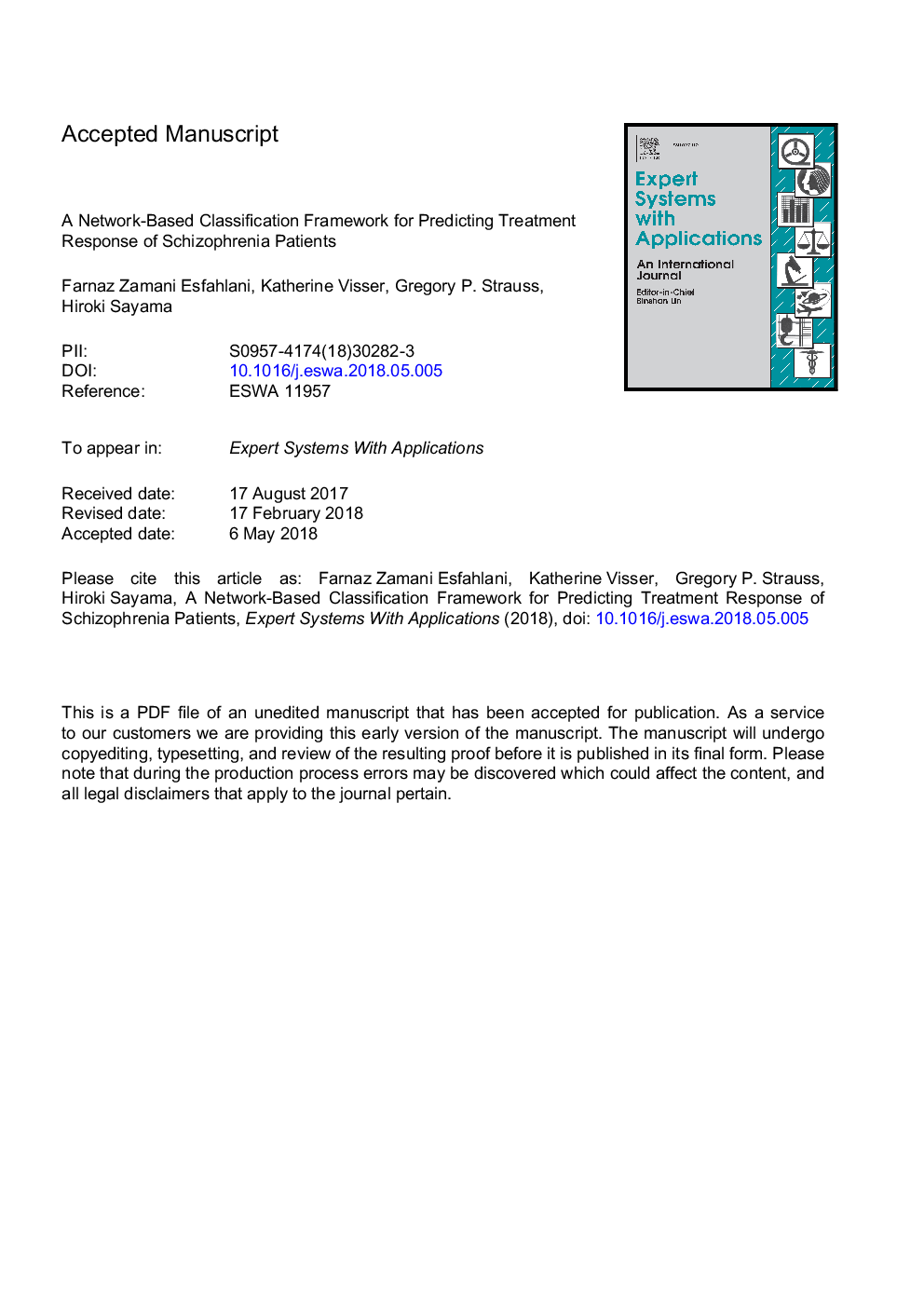| Article ID | Journal | Published Year | Pages | File Type |
|---|---|---|---|---|
| 6854857 | Expert Systems with Applications | 2018 | 14 Pages |
Abstract
Knowledge-based systems including expert systems are one of the core components of clinical decision support systems. Nonetheless, modeling the uncertainty in medical knowledge is one of the main challenges of developing and employing such systems. Among various disorders, mental disorders are especially difficult to model because of their interconnected symptoms that give rise to complex outcomes such as resistance to different treatments. Here, we propose a network-based classification framework to distinguish treatment resistant schizophrenia patients from treatment responsive ones. Within this network-based framework, different antipsychotic medications are considered as external agents that change different properties of a symptoms interaction network where each node of the network represents one symptom. The overall goal of this study is to identify the symptoms that play a major role in responsiveness of the patients to antipsychotic medications. The proposed framework was tested using Clinical Antipsychotic Trials of Intervention Effectiveness (CATIE) dataset and compared with three other commonly used feature selection methods: reliefF, Support Vector Machine (SVM) weights, and information gain. According to the results, features selected based on information gain and network analysis provided better classification performance, while the latter also considered the interactions of symptoms and is more interpretable.
Related Topics
Physical Sciences and Engineering
Computer Science
Artificial Intelligence
Authors
Farnaz Zamani Esfahlani, Katherine Visser, Gregory P. Strauss, Hiroki Sayama,
